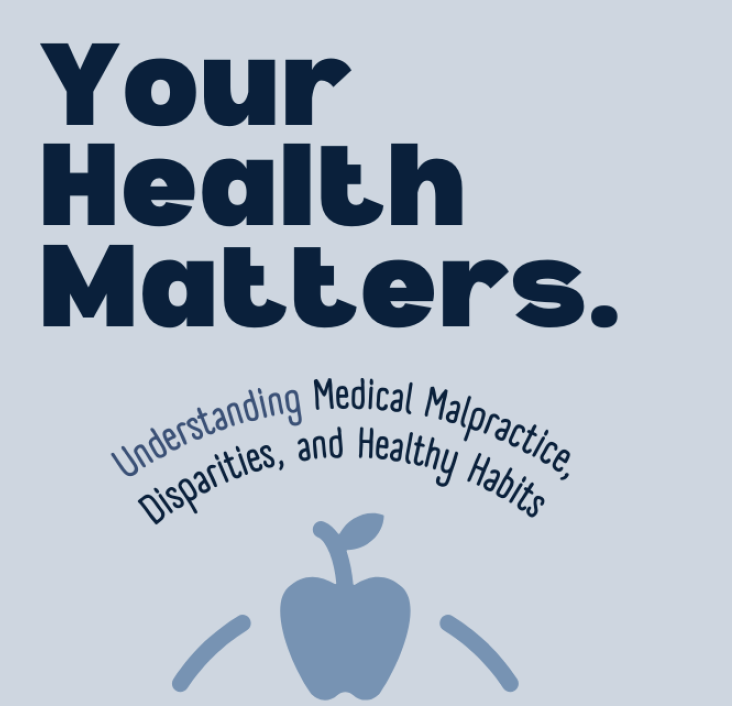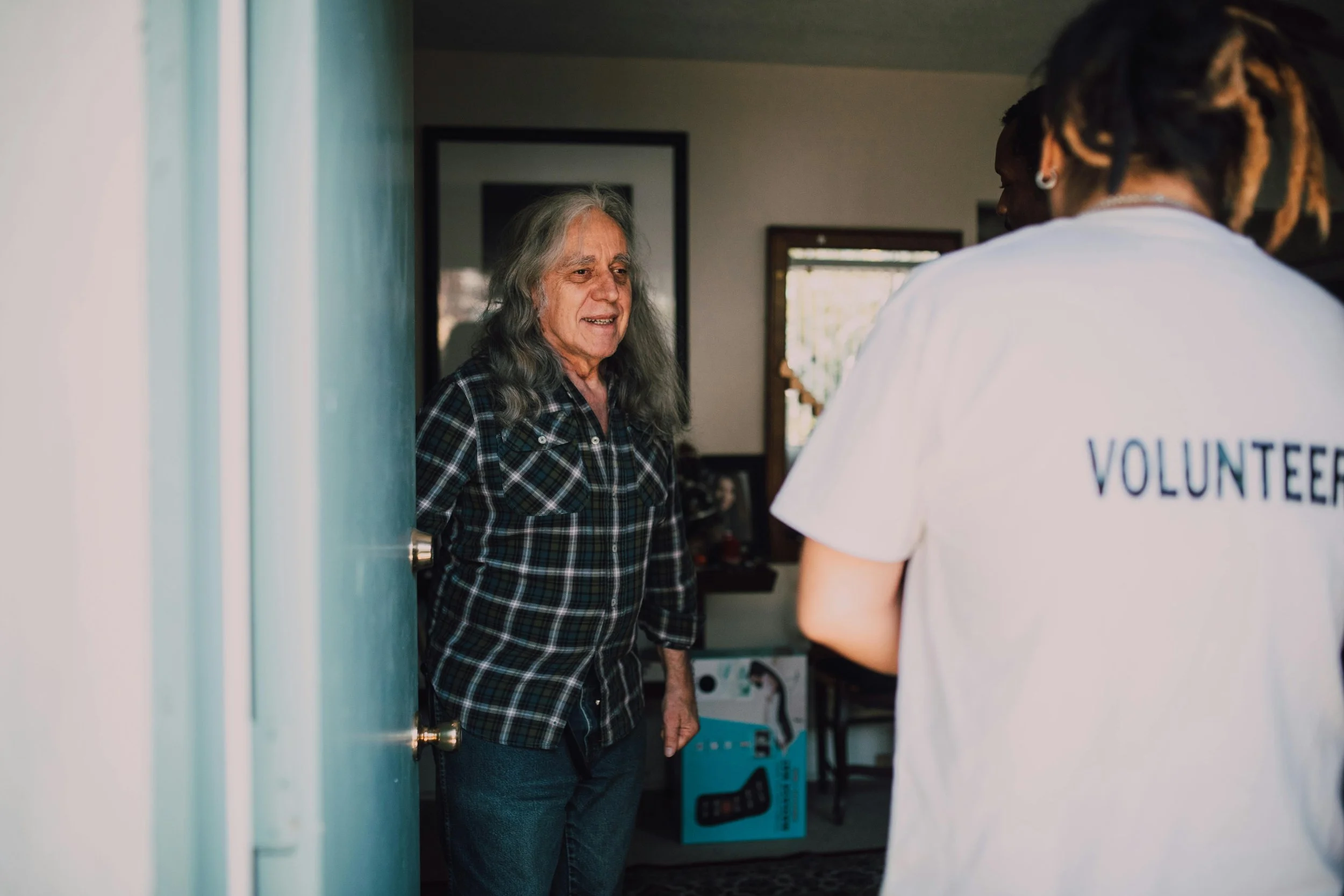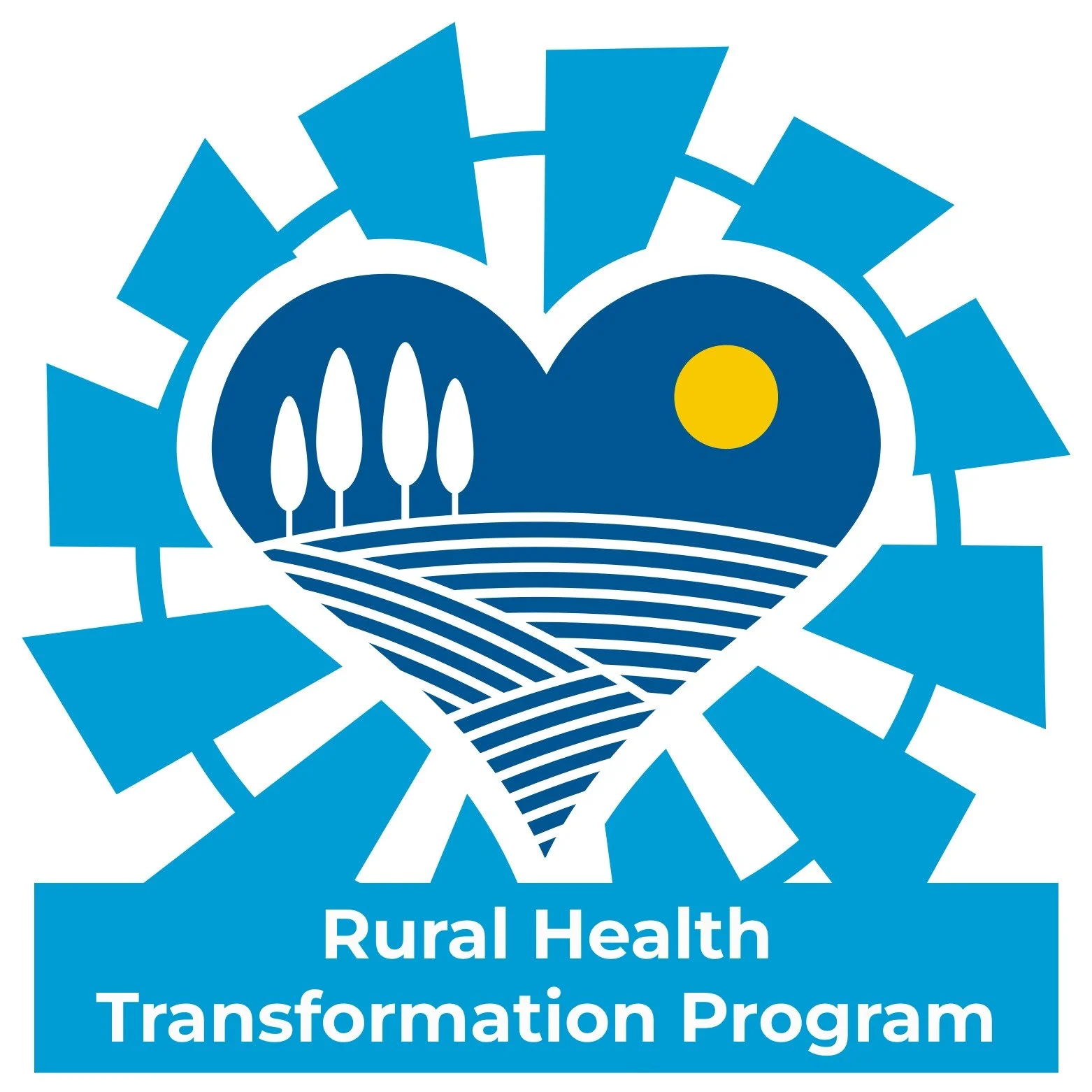Student-Led Health Advocacy Team Addresses Critical Gaps in Youth Health Awareness
The WNC HPI is pleased to highlight Remediate, a student-led health equity and patient advocacy initiative dedicated to raising awareness of healthcare disparities among youth, particularly within underserved communities, as well as providing evidence-based resources to improve health literacy and health behaviors. Click to learn more about Remediate’s work and access free health resources.
No Wrong Door in North Carolina: Connecting Services for WNC and Beyond
North Carolina ranks 41st nationally on Long-Term Services and Supports, reflecting the fragmented system of care that many residents in WNC and across the state face when seeking help. For many people across North Carolina, and especially in Western North Carolina (WNC), finding help can feel like navigating a maze. Whether someone is seeking support for aging in place, disability services, caregiving, housing stability, or recovery, the system often requires knocking on multiple doors before finding the right one.
The No Wrong Door framework was created to address this challenge. Guided by the Administration for Community Living, No Wrong Door is not a single program, technology platform, or intake system. Instead, it is a framework that helps states align governance, outreach, counseling, and access points so individuals can more easily find and receive the resources, information and help they need.
Fragmented Care & the No Wrong Door Approach - WNC Health Policy Podcast Ep. 20
North Carolina ranks 41st nationally on Long-Term Services and Supports, reflecting the fragmented system of care that many residents in WNC and across the state face when seeking help.
In this episode, we discuss the No Wrong Door (NWD) framework and how North Carolina is using it as a roadmap - although not yet a fully built system - to better coordinate services statewide, including in Western North Carolina.
WNC HPI 2025 Year in Review!
As 2025 draws to a close, we want to celebrate everyone who has worked with us to advance the health and healthcare needs of Western North Carolina. In this report, we’ve compiled a roundup of HPI activities, blog posts, podcasts, events, and other highlights from our work this year, showcasing the collective impact we’ve made together.
Download the pdf to get your copy of the 2025 WNC HPI Year in Review, or read it below. We’re excited to share these with you and look forward to continuing our important work in the year ahead!
UNC Program for Oral Health Policy: Strengthening North Carolina’s Oral Health Systems
This fall, the University of North Carolina at Chapel Hill Adams School of Dentistry (UNC ASOD) launched the UNC Program for Oral Health Policy. The program was developed in response to longstanding gaps in access, prevention, and workforce distribution in North Carolina, and reflects UNC ASOD’s ACT curriculum (Advocate, Clinician, Thinker), which emphasizes the importance of preparing clinicians who understand how health systems operate and how policy influences patient care. The program incorporates policy analysis, community-based learning, and systems-focused training to provide learners with a clearer understanding of the conditions influencing oral health delivery across the state.
Weathering The Storm: Lessons Learned from The Healthcare Response to Hurricane Helene, Part 3 - WNC Health Policy Podcast Ep. 19
Join us as we continue our exploration of the WNC Health Policy Initiative's collaborative study, “Lessons Learned from the Healthcare Response to Hurricane Helene” with researchers Alex Mitchell and Soni Pitts as they examine how healthcare leaders in Western North Carolina responded to the crisis.
In Part 3 of our podcast series, hear from the research team about what worked, what didn’t, and the practical recommendations health care leaders say are needed to strengthen Western North Carolina’s disaster preparedness moving forward.
Regionalizing Food Systems for Resilience: A Conversation with Dr. Patrick Baron - WNC Health Policy Podcast Ep. 18
In this episode of the WNC Health Policy podcast, epidemiologist Dr. Patrick Baron, Assistant Professor and Program Director of the Integrated Health Sciences at Western Carolina University, helps us understand the big picture around food access and population health in WNC, and where things stand after multiple hits to food infrastructure, including: the end of emergency allotments for COVID-19 in the Food and Nutrition Services (FNS) program in 2023, Hurricane Helene in September 2024, cuts to the USDA in spring of 2025 and the passage of The One Big Bill Act of July 2025.
WNC Health Policy Initiative 2025/2026 Working Group Updates
On October 31, the WNC HPI convened with our working group leads for a briefing to share progress and align next steps across the WNC HPI’s three core focus areas: Social Drivers of Health (SDOH), Access to Healthcare, and Healthcare Workforce Development. In this summary update, we share key takeaways, themes and action items drawn from the Oct 31 briefing to provide a roadmap of the working group’s activities over the next several months.
Medicare Advantage at a Crossroads: Incentives, Access, and the Future of Care
Medicare Advantage (MA), also known as Part C, has become the dominant path through which older adults receive Medicare coverage. More than half of all beneficiaries — roughly 33–34 million people — are enrolled in plans operated by private insurers. These plans promise convenience and financial protection, including caps on out‑of‑pocket spending and some extra benefits not found in Original Medicare. At the same time, MA brings challenges that stem directly from how the program is designed, and these structural incentives can affect access to timely care, especially for people with complex health needs or limited provider options.
Patients Fear Fallout From NC Medicaid Rate Cuts (reprint)
Thanks to predicted funding cuts in NC’s Medicaid rebase, NC DHHS implemented a series of sweeping cuts to adjust for the shortfall. Under the announced plan, nearly all Medicaid providers will face rate reductions of 3 percent to 8 percent, while some categories — including nursing homes, hospitals, psychiatric residential treatment facilities and certain ambulatory services — will see steeper cuts of up to 10 percent.
The reductions will affect services across the board, from personal care and home health to outpatient therapy and hospital care.
Weathering The Storm: Lessons Learned from The Healthcare Response to Hurricane Helene, Part 2 - WNC Health Policy Podcast Ep. 17
Join us as we continue our exploration of the WNC Health Policy Initiative's collaborative study, “Lessons Learned from the Healthcare Response to Hurricane Helene” with researchers Alex Mitchell and Soni Pitts as they examine how healthcare leaders in Western North Carolina responded to the crisis.
In this episode, we’re taking a closer look at how this research study was developed, including the study’s design, the methods used to collect data, and the process by which researchers sought to answer questions about healthcare system readiness, communication, and coordination during the hurricane response to inform rural disaster preparedness and public health practice.
Inside the Politics of Health: A Conversation with Dr. Chris Cooper
Health policy doesn’t happen in a vacuum—it’s the product of political negotiation, lobbying, legislation and often a delicate balance of regional interests. On a recent episode of the WNC Health Policy Initiative Podcast, we had the opportunity to sit down with Jackson County’s own Dr. Chris Cooper, Robert Lee Madison Distinguished Professor and Director of the Haire Institute for Public Policy Western Carolina University at Western Carolina University, and author of Anatomy of a Purple State, to take a deeper look at the dynamics shaping health policy in North Carolina today. In this article, we explore the current background and landscape of health policy in North Carolina touched on by Dr. Cooper, as well as review some of the relevant legislation coming up on the NC General Assembly’s consideration in the coming months.
Budget Battles, Lobbying & Legislation: Navigating Health Policy in NC with Dr. Chris Cooper - WNC Health Policy Podcast Ep. 16
In this episode of the WNC Health Policy Initiative Podcast, we sit down with Dr. Chris Cooper, distinguished political scientist from Western Carolina University, to unpack the forces shaping health policy in North Carolina. From the role of lobbying and interest groups to the legislative process behind health-related bills currently on the table, Dr. Cooper offers a look into how policy is made, and offers insights into how you can effectively advocate for the issues that matter most.
CMS’s Rural Health Funding Announcement - Key Takeaways
On September 15, 2025, CMS released a Notice of Funding Opportunity (NOFO) for the Rural Health Transformation Program outlining key requirements, deadlines, and criteria that states will need to apply for this funding, which is intended to support improvements to rural healthcare systems as well as health outcomes in rural areas. In this article, we share key takeaways from this announcement.
The Cost of the One Big Beautiful Bill: WNC’s Fight for Healthcare Access - WNC Health Policy Podcast Ep. 15
On July 4, 2025, Donald Trump signed the “One Big Beautiful Bill Act,” or H.R.1, into law. The funding cuts and policy changes embedded in this sweeping legislation could reshape healthcare access across Western North Carolina. Join us as we sit down with Katie Alexander and Ali Houghton from Pisgah Legal Services to discuss this controversial piece of federal legislation and gain insight into what it could mean for healthcare access in WNC.
What the "One Big Beautiful Bill" Means for Healthcare Access in WNC
On July 4, 2025, Donald Trump signed the “One Big Beautiful Bill Act,” or H.R.1, into law. The funding cuts and policy changes embedded in this sweeping legislation could reshape healthcare access across Western North Carolina. WNC HPI sat down with Katie Alexander and Ali Houghton from Pisgah Legal Services to discuss this controversial piece of federal legislation and gain insight into what it could mean for healthcare access in WNC.
Announcing the Release of the WNC HPI 2024-2025 Impact Report
Announcing the release of the WNC Health Policy Initiative 2024-2025 Impact Report. Download the report to see highlights of the policy work that our Western North Carolina health and healthcare leadership partners have done together over the past year, and the impacts and outcomes that work has generated.
Weathering The Storm: Lessons Learned from The Healthcare Response to Hurricane Helene, Part 1 - WNC Health Policy Podcast Ep. 14
A year after the storm, the WNC Health Policy Initiative, in partnership with the NC Center for Health and Wellness, has launched a study to explore how health system leaders navigated the challenges of Hurricane Helene: what worked, what didn’t, and what must change to strengthen our regional response in future crises. Through interviews and qualitative research, the team is gathering critical insights to shape smarter, more resilient practices for health organizations, communities, and governments across WNC. In this episode, our research team shares how this study was developed, why it matters, and what they hope to achieve.
Announcing a New WNC HPI Podcast Series Exploring Lessons from The Healthcare Response to Hurricane Helene
The Western North Carolina Health Policy Initiative (HPI) has launched a new podcast series that takes a deep dive into a new WNC HPI research project exploring what we can learn about our region’s healthcare response in the days and weeks following Hurricane Helene’s devastating landfall across Western North Carolina on the evening of Sept 27, 2024.
This project is one of 21 Helene-focused research efforts supported by the North Carolina Collaboratory, and is driven by team members from across the North Carolina Center for Health & Wellness (NCCHW) and UNC Asheville’s Health Sciences department who are working to capture this critical piece of our region’s recent history.
Healthcare Workforce Shortage Opportunities - WNC Health Policy Podcast Ep. 13
In this episode, UNCA student intern Emma Hoosier shares her perspective on the healthcare workforce shortage in Western North Carolina. Through her internship experience, she reflects on conversations with local providers and community members about the challenges facing the region — and the potential solutions emerging from local insights, state initiatives, and national policy discussions. She also shares her own path to becoming an intern with the NCCHW, offering a glimpse into how other students in WNC can get involved in public health efforts across the mountains.


















